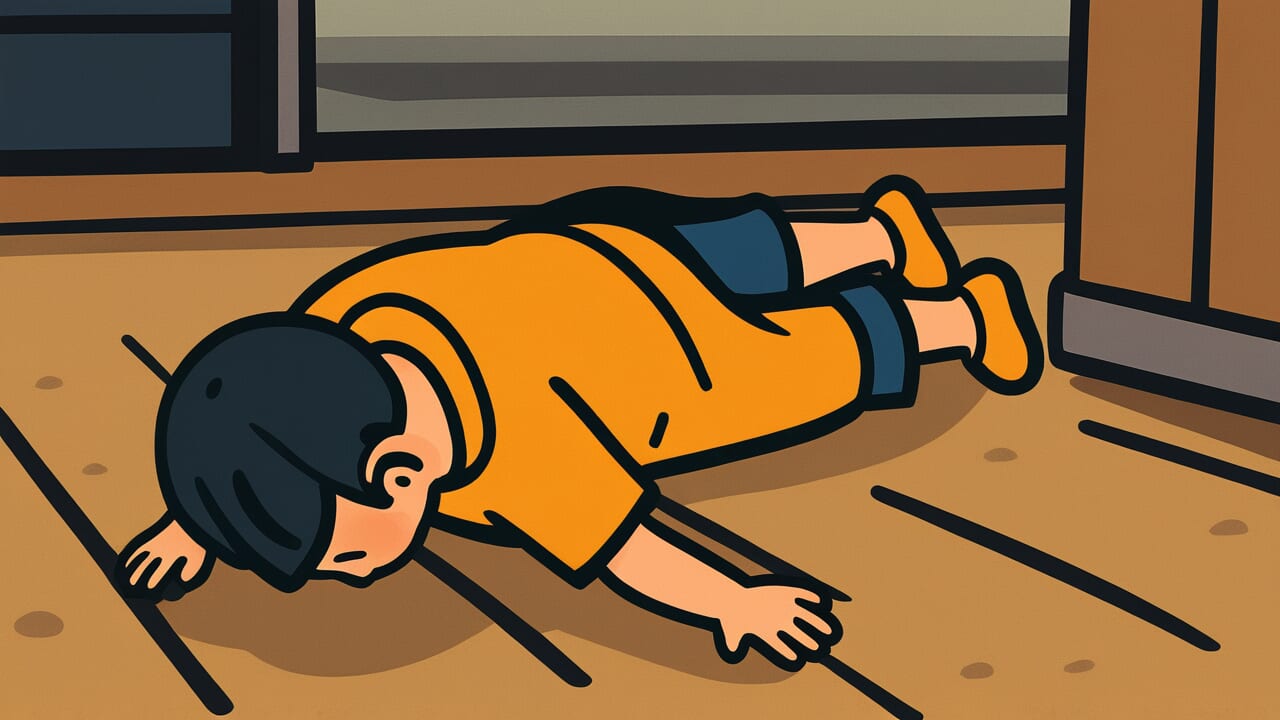How to Read “Even a child you abandon, you leave under the eaves”
Suteru ko mo noki no shita
Meaning of “Even a child you abandon, you leave under the eaves”
“Even a child you abandon, you leave under the eaves” teaches that even toward those we must leave behind or who face hardship, we should still offer some small protection.
It shows wisdom about human relationships. We shouldn’t completely cut people off. We should maintain at least minimal consideration and compassion.
This proverb is used when someone must sever ties or end a relationship. It reminds us not to become completely cold-hearted.
Even when a relationship ends, we should keep basic human kindness. This is the core teaching.
Today, this spirit matters when relationships end, people leave organizations, or support gets cut off. Even in difficult situations, leaving some room for consideration preserves our dignity as human beings.
This understanding has been passed down through generations. Not abandoning someone completely, but leaving even slight consideration, defines what it means to be human.
Origin and Etymology
No clear historical records document the origin of this proverb. However, the structure of the phrase reveals an interesting background.
“A child you abandon” refers to a sad reality that existed in Japan before and during the Edo period.
Due to poverty and famine, parents who could no longer raise their children would leave them at temples, shrines, or in front of wealthy homes.
The key detail is that they didn’t leave children completely exposed. They placed them “under the eaves,” meaning under a roof. This shows the parents’ final act of love.
The space under the eaves doesn’t fully protect from rain and wind. But it’s better than being completely exposed to the elements.
This subtle positioning captures the essence of the proverb. Even in the act of abandonment, a trace of protective intent remains.
It’s not complete rejection, but minimal consideration. The phrase condenses this complex human emotion.
The eaves represent a boundary space. It’s neither inside the house nor completely outside.
This ambiguous position symbolically expresses a state between full protection and total abandonment. It represents an in-between form of shelter.
Usage Examples
- That company followed “even a child you abandon, you leave under the eaves” by continuing minimum payments to a bankrupt business partner
- My relationship with him ended, but following “even a child you abandon, you leave under the eaves,” I’ll still listen if he needs advice
Universal Wisdom
“Even a child you abandon, you leave under the eaves” contains wisdom that represents the last fortress of human morality.
Why can’t people completely abandon others? Deep in our hearts exists an instinct to maintain minimal consideration for others.
This proverb has been passed down because it shows the difficulty of “how to end” relationships.
When cutting ties or withdrawing support, people always struggle. Becoming completely cold-hearted actually hurts not just the other person but ourselves too.
Humans instinctively know this truth.
The slight shelter of the eaves might be the last breakwater protecting the humanity of those who abandon.
If we completely push someone away, we ourselves become heartless beings. That’s why, even in painful situations, we try to leave minimal consideration.
This isn’t weakness. It’s the strength needed to remain human.
Our ancestors understood something important. Anyone might someday be the one left under the eaves.
Therefore, maintaining minimal dignity when treating others eventually protects ourselves. This understanding of reciprocity is the universal truth of this proverb.
When AI Hears This
Living things have instincts to protect offspring to pass on genes. But survival resources are limited. When these two pressures collide, interesting compromise behaviors emerge.
According to Hamilton’s kin selection theory, organisms show altruistic behavior based on genetic relatedness.
Your own child shares 50 percent of your genes, so theoretically you should protect them fully. But during famine or poverty when you can’t feed everyone, choices arise to sacrifice some to avoid total loss.
What’s important here is not complete abandonment but maintaining the subtle distance of “under the eaves.”
This relates to a psychological phenomenon called the proximity effect. The brain recognizes individuals physically nearby as “still under my control.”
This reduces the psychological pain of complete separation. Evolutionarily, it’s also a distance allowing quick recovery if conditions improve.
Abandoning completely in the forest means wild animals might attack. But under the eaves, survival possibility remains.
This behavior is the optimal solution the brain automatically calculates between the instinct to protect genes and resource constraints.
It minimizes guilt from the decision to abandon while leaving slight survival possibility. What appears as rational human judgment is actually evidence of biological programming evolved over tens of thousands of years.
Lessons for Today
This proverb teaches modern people about “dignity in how we end relationships.”
In an era when we can easily block people on social media, when job changes and divorce are normal, we may have become too accustomed to cutting ties.
However, we can leave minimal consideration in any relationship’s ending.
A simple greeting to a former colleague. Basic courtesy to an ex-partner. Careful handover when leaving a company. These are modern equivalents of “under the eaves.”
What’s important is that this consideration isn’t just for the other person. It’s actually for yourself too.
The habit of coldly cutting relationships gradually hardens your own heart. Conversely, maintaining minimal kindness protects and enriches your humanity.
Even if you can’t provide perfect support, anyone can offer slight consideration.
This accumulation of small kindnesses makes you a person of dignity. Eventually, it creates a society that will support you in return.



Comments